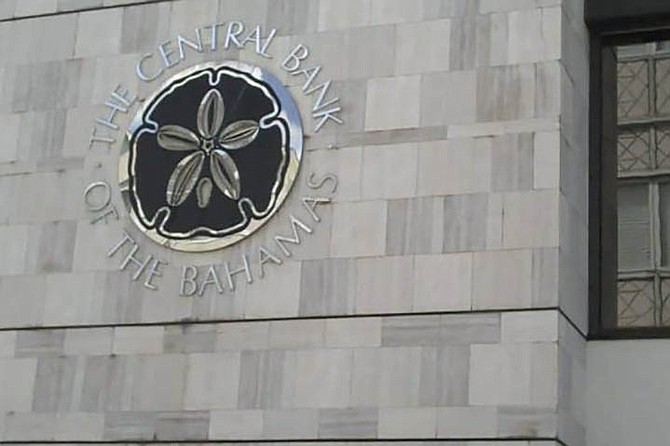By NEIL HARTNELL
Tribune Business Editor
nhartnell@tribunemedia.net
Realtors yesterday expressed surprise that the Central Bank had identified their industry as posing a higher money laundering risk given the due diligence “overkill” clients currently face.
George Damianos, president and managing broker of Damianos Sotheby’s International Realty, told Tribune Business that international buyers in particular are presently subjected to Know Your Customer (KYC) scrutiny by four different agencies and industries often using the same sources.
Describing the amount of compliance-related paperwork confronting Bahamian realtors as “discouraging”, Mr Damianos said it also threatened to create “problems and frustration” with our clients and further exacerbate The Bahamas’ “ease of doing business” inefficiencies.
The Central Bank, based on a 2018 study of deposit flows within the domestic Bahamian commercial banking industry, singled out three industries - real estate, gaming and money transmission services - as potentially posing the “major risks” when it came to sectors vulnerable to exploitation by money launderers and other financial criminals.
Real estate was cited because of its sheer size and number of industries it touches, with deposit inflows to it accounting for more than 50 percent of the funds circulating through the 17 sectors analysed by the Central Bank.
Mr Damianos, though, said the regulator’s assessment would have a negligible impact on the Bahamian real estate market. He explained: “The implications are minimal because we are considered financial institutions, and have to comply with the KYC needs of the Compliance Commission.
“We are very compliant. The real estate industry is doing that through the Bahamas Real Estate Association (BREA). It is getting done. Really, the real estate market in The Bahamas, the foreign second home and vacation rental market, there’s not a lot of risk with money laundering in that market. There may be some, but there’s not a lot of risk.
“I’d say people buying vacation homes in Abaco or condos on Paradise Island, it’s pretty straightforward, pretty civil and the people are legitimate. The old days of drug lords buying properties in The Bahamas seem to be diminishing.”
Mr Damianos said Bahamian realtors had been turned into compliance gatekeepers by the KYC scrutiny they were required to conduct on buyers and sellers, and the need to keep such records for a specified period of time.
“The lawyer is doing the same thing, the Central Bank is doing the same thing (exchange control) and, if an Investments Board permit is needed, the Government is doing the same thing,” Mr Damianos explained to Tribune Business.
“We have four groups of people doing the same due diligence on the same customer. It would be very prudent, and make a lot of sense, if there was one central government agency doing the same approval process for all sales done rather than leave it up to the real estate company to do one and the lawyer do the other.
“It’s a bit of overkill, and a lot of us will be using the same source: World Check. Add that to the ease of doing business in The Bahamas, and we are looking for a lot of problems and frustration with our clients,” he continued.
“Our prime market is the second home/vacation rental market, and that is generally a very clean, consistent system. It is discouraging to have all this paperwork put on your desk. I’m asking them for the same information that the lawyers are asking for.”
Mike Lightbourn, Coldwell Banker Lightbourn Realty’s president, told Tribune Business he was “surprised” that the Central Bank would cite real estate for potential money laundering vulnerabilities given that he was unaware of any such incidents.
“I guess I’m surprised because usually we know who our clients are,” he said.
Explaining the rationale for its conclusion, the Central Bank said the real estate industry’s sheer size meant its potential for abuse by financial criminals cannot be ignored, given that it touches attorneys, developers and real estate brokers and agents. Between the three, they accounted for $3.589bn of the $6.17bn in Bahamian dollar deposit inflows analysed in the study.
“Attorneys and legal firms are by some distance the largest segment among the 17 under consideration, with close to half the deposit inflows. This reflects the legal industry’s engagement in real estate settlements,” the Central Bank added.
Real estate-related deposits comprise more than half the deposit flow across the 17 sectors. The real estate industry, broadly defined, is big enough to constitute at least a potential threat. That threat could arise from either Bahamian dollar or foreign currency flows, but evidently not from cash-based transactions.”
“In the Bahamian domestic banking context, the major AML/CFT risks are likely to reside in real estate, gaming and money transmission, and the risks in the first two of these segments are shared between domestic and international clients. As regards money transmission, the Central Bank is taking steps to lift the intensity of its supervision in this industry.”





Comments
Use the comment form below to begin a discussion about this content.
Sign in to comment
OpenID